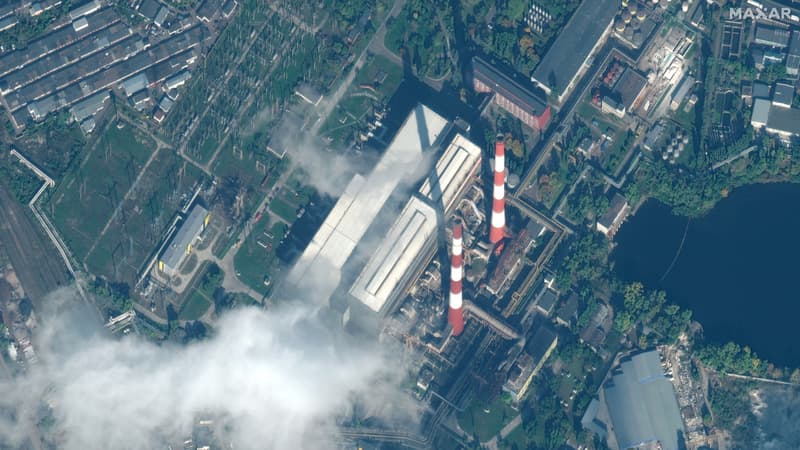This week, images of Kyiv engulfed in darkness have been widely circulated in the media. More than a million homes are without electricity after the Russian attacks this Saturday, according to the Ukrainian presidency. Because after targeting nuclear power plants, Moscow has a new target: electrical installations.
In just over a week, Russia has destroyed 30% of Ukraine’s power plants causing “massive” power outages as winter approaches, according to Voldymyr Zelensky on Tuesday. “Three electrical installations have been destroyed by the enemy (…) We are preparing for all kinds of scenarios for the winter season under the assumption that Russian terror is directed at electrical installations,” the Ukrainian president said in the daily message from him. .
Target the civilian population
A strategy clearly assumed by Moscow.
“Over the past 24 hours, Russian forces have continued to attack Ukraine’s military and energy command systems with long-range, high-precision weapons,” Russian Defense Ministry spokesman Igor Konashenkov said on Thursday.
While the Ukrainian counteroffensive continues to gain ground, Vladimir Putin opts for a new strategy: that of terror. “The military impact is quite low. In the best of cases, this can slow down the arms industries, but above all it hits the civilian population, it disrupts daily life”, analyzes General Jérôme Pellistrandi, defense consultant for our antenna. For the military, hitting electrical installations is equivalent to attacking “the civilian population”, which “is taken hostage”.
“Break the Ukrainian resistance”
Which undermines the morale of the Ukrainians, acclaimed since the beginning of the war for their perseverance. “The plans have not been successful, so the further we go into the fall, the more solutions Vladimir Putin will have to find to break the morale of the Ukrainians,” Christian Makarian, an editorialist for the Spot and specialist in international politics.
According to him, we have entered “a new phase of the war”, which “consists in sowing panic and fear” and “preparing a very harsh winter for the entire Ukrainian people”. “The goal is to break the Ukrainian resistance,” agrees General Jérôme Pellistrandi.
Without electricity, hospitals, schools and transportation, essential for evacuating populations, cannot function. In Kyiv, Mayor Vitaly Klitschko had to install generators to maintain electricity in strategic locations.
Electric sobriety, a new weapon of war
And Ukrainians are asked to reduce their electricity consumption. In the face of Russian attacks, Kyiv is, in fact, establishing energy sobriety as a weapon of war. “Every kilowatt saved is a weapon against the enemy’s plans,” the head of the Kryvyi Rih military administration, Oleksandr Vilkoul, wrote in a Telegram message.
“Each washing machine that does not work at night allows others to have light”, specifies in the same way the solgan of the manager of the Ukrainian electricity network. Ukrainians are playing the game: they have already voluntarily reduced their electricity consumption by 5-20% on average on certain days and in certain regions.
But does this “terror” strategy constitute a war crime? Yes, according to constitutionalist Anne-Charlene Bezzina, who recalls article 8 of the Rome Statute of the International Criminal Court. The intentional direction of attacks against civilian objects, that is, objects that are not military objectives, is considered a war crime. However, hitting the electrical infrastructure is equivalent to attacking “paramilitary targets, which only hit civil society,” she recalls.
Source: BFM TV


